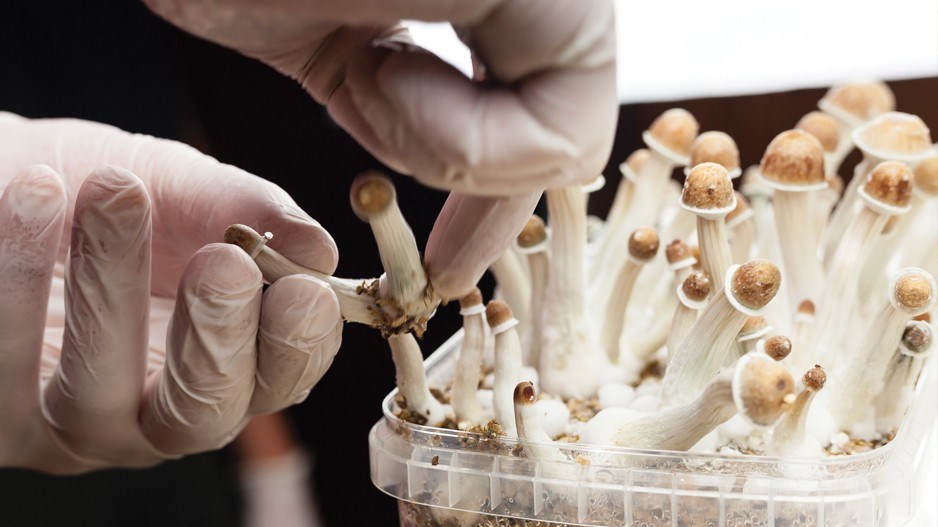As a half-century-long war on drugs winds down, it’s worth looking back on a long and tangled trail of contraband drugs and medical pharmaceuticals ranging from Bayer (ETR:BAYN) trademarking heroin in 1895 to the legal prescription of medical marijuana in this century.
Today, medical professionals are researching the benefits of psychedelic drugs and perhaps loosening their close association in the public’s mind with 1960s hippies and rock bands.
Psychedelic drugs have had an interesting past, influencing the lives, thoughts and philosophies of some the world’s most prominent thinkers, including writer Aldous Huxley, physicist Richard Feynman and Apple (Nasdaq:AAPL) co-founder Steve Jobs and sometimes inspiring them to go beyond the realm of conventional thought. Psychedelics also had a profound impact on the thoughts of molecular biologist Francis Crick, famous for identifying the double helix structure of DNA while reportedly under the influence of psychedelics.
Of particular interest to medical researchers is the potential for psychedelics to help people suffering with post-traumatic stress disorder (PTSD), depression, anxiety and other mental-health issues.
In the same ways that psychedelics inspire outside-the-box thinking by inventors and scientists, they can help people think about and address the trauma underlying their mental illness in atypical ways.
While traditional pharmaceutical mental health treatments tend to numb or mask emotional pain, psychedelics can compel people to confront the roots of their problems.
People suffering from PTSD often have an unresolved issue deep within their subconscious that manifests itself as stress, anxiety and other physical responses. The psychoactive chemical in psychedelic mushrooms, psilocybin, can profoundly affect users’ thinking and allow them to confront issues buried in their subconscious.
There are several hundred studies being conducted around the world investigating the medical benefits of magic mushrooms, ranging from improving mental health to bolstering immune systems. The studies are proving promising, so much so that Data Bridge Market Research forecasts that the psychedelic therapeutics sector will grow to become a US$6.8 billion industry in North America by 2027. With billions of dollars on the line, Vancouver-based Havn Life Sciences (CSE:HAVN) thinks that British Columbia is uniquely positioned to benefit from this emerging industry.
British Columbia’s progressive attitude toward addiction and drug use makes the city the perfect place to expand this burgeoning industry, according to Havn Life Sciences CEO Tim Moore.
The province’s knowledge and leadership within the cannabis sector is also fuelling the startup of this new industry.
B.C.’s expertise in medical cannabis has provided the road map for much of the industry, said Moore, whose firm includes people from the cannabis sector on its management team and board of directors.
Growing acceptance
Eight years ago, some people were being granted Health Canada exemptions for cannabis use in severe cancer and end-of-life treatment. Eventually that group expanded and other identifiable groups, like veterans, were granted an exception and received government funding. The medical use of psychedelic mushrooms is now beginning to find a similar path toward acceptance.
In August, four Canadians with terminal cancer won the right to use psychedelic mushrooms after applying for a federal health exception in April. Then in early December, Health Canada granted 16 exceptions to a selection of doctors, nurses, therapists and social workers, allowing them to possess and use psilocybin for personal training without the fear of prosecution under Canada’s drug laws.
As therapists, doctors and researchers continue to test the medical effects of psychedelics, its acceptance grows and creates the need for safe production and supply.
The main issue surrounding the production of psychedelic mushrooms for medical use is that psilocybin is classified as controlled substance. That makes it difficult to cultivate legally. As a result, many researchers have been using synthetic or grey-market psilocybin.
But Moore said synthetic psilocybin is more expensive to produce and less appealing to patients who have rejected traditional pharmaceuticals for natural alternatives.
Havn Life Sciences obtained the regulatory approval to work with psilocybin for the purpose of research and development of quality control and standardization, and is awaiting approvals to build an end-to-end supply chain for naturally grown psilocybin. It also has plans to supply researchers with naturally grown psilocybin and then develop and increase production for the chemical compounds that prove to have medical benefits.
“The expectation is that if we partner with enough different researchers, when one of those gets to market with a formulation, we’ll be the manufacturer for the product,” said Moore. “So we’ll already have the experience of doing that on their behalf.”
Currently, universities provide form and dose specifications for the psilocybin they need. Havn Life Sciences then grows the mushrooms, extracts the compound, refines it, manufactures the tablet or capsule and sends it to the university in the hope that the company will commercially manufacture the successful ones in the future.
By securing regulatory approval, Moore said, Havn Life Scienceshas already cleared the largest barrier to entry. •




